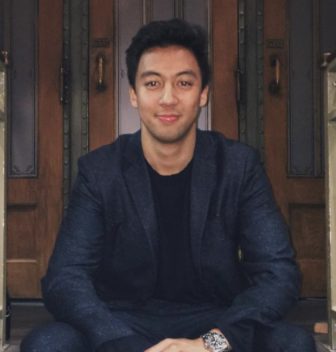Miles Casas, a 30-year-old man from New Canaan, has been battling kidney failure for the past five years.

Miles Casas
Diagnosed with Membranoproliferative Glomerulonephritis; a rare autoimmune disease, at the age of 12, Casas’ condition would only worsen with age.
”It’s extremely rare, it typically happens in children,” Casas, who attended St. Aloysius School, told the New Canaanite. “A mutation happens in the DNA for unknown reasons, maybe caused by stress or an illness. It could be for various reasons, but basically it’s unknown and there’s not really a cure for it.”
As a result of this condition, Casas lost function in both kidneys in 2019, requiring him to undergo nine hours of dialysis every night in order to survive.

Miles Casas
“For the past five years I’ve been on it, and I’ve been working for two of those years,” Casas said. “It hasn’t been easy juggling the schedule of having to be on dialysis. There’s clear limitations in regards to planning travel or spur of the moment activities that I would want to do. It’s constantly in the back of my mind, OK, how am I going to do this, because this thing needs to keep me alive.”
While two of Casas’ close friends offered to donate a kidney, they were ultimately deemed ineligible due to underlying health conditions.

Miles Casas
“For both of my friends’ instances, they’re both in their 20’s, young, healthy, fit,” Casas said. “But one of them had a heart condition that was found, and another one found that he had a high risk of kidney stones.”
The process for becoming a Donor, Casas explained, is not as simple as it might sound.
”They basically have to go through some rounds of testing, blood testing, urine collection, physical test,” Casas said. “It’s just constant following up with the hospital on that, which would take a few months. The main thing is one, are they healthy, two, does their blood type match mine. And three, if they’re comfortable going through the screening process which takes a few months.”

Miles Casas
While finding a direct compatible donor can prove difficult, the process can be made easier through something called a Kidney Paired Donation or “Kidney Swap.”
“If they’re really feeling generous, and they just want to help someone, they can even donate their kidney, not to me but to someone else,” Casas said. “It’s called a kidney swap. There’s different donors around the country who, let’s say you wanted to donate your kidney but your blood type doesn’t match my blood type. It would go into this system where someone else is looking for a kidney with your blood type, so it would go to that person and I would get priority.”
Casas’ blood type is O negative. Those interested in becoming a donor can find more information on Casas’ support page here: https://nkr.org/LQU548.
Miles was our neighbor in New Canaan for years and a friend to our sons. He is a wonderful person, and we hope he gets relief!